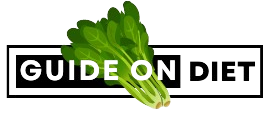Allergic coughs occur when your immune system overreacts to harmless substances such as pollen, dust, mold or pet hair. These allergens trigger an inflammatory response in the respiratory system, causing the body to cough in an attempt to expel the irritating substances. Unlike coughs caused by colds or infections, allergic coughs are usually dry, persistent, and accompanied by other allergy symptoms such as sneezing, runny nose, itchy eyes or nasal congestion. Common during allergy season or in dusty environments, this type of cough can be managed through home remedies or medical treatments designed to reduce allergic reactions.
Why home remedies can be helpful in managing symptoms.
Home remedies can be helpful in managing allergic cough symptoms as they provide natural, gentle relief without the side effects associated with medications. Remedies such as honey, ginger and steam inhalation can soothe irritated airways, reduce inflammation and loosen mucus, providing quick relief. Hydration and humidifiers help maintain moist airways, thereby reducing coughing.

Additionally, certain remedies such as turmeric and quercetin-rich foods have anti-inflammatory and antihistamine properties that target the root cause of allergy symptoms. While home remedies are not a substitute for medical treatment, they can complement existing allergy management strategies and provide accessible, cost-effective relief.
Effective Home Remedies for Allergy Cough
Stay Hydrated
Drinking warm water and herbal teas is important for relieving an allergic cough because warm liquids help thin mucus, making it easier to expel from the respiratory tract. This reduces congestion and clears the airways, making it easier to breathe. Warm liquids also soothe an irritated throat by moisturizing dry tissues and reducing inflammation caused by persistent coughing.
Herbal teas such as ginger or peppermint offer additional benefits through their anti-inflammatory and decongestant properties, which help relax airway muscles and reduce coughing. Staying hydrated is also important to maintain moisture in the throat and respiratory tract, which helps to speed recovery and relieve allergy symptoms.
Honey and Warm Water
Honey has powerful antimicrobial and anti-inflammatory properties that make it an effective natural remedy for allergic cough. Its antimicrobial action helps fight bacteria and infections that can aggravate respiratory symptoms, while its anti-inflammatory properties soothe irritated tissues in the throat. Honey also acts as a natural cough suppressant by coating the throat, reducing the irritation that triggers coughing. Its antioxidant content further aids in reducing inflammation and boosting immunity.
How to Use Honey:
- Honey and Warm Water: Mix 1-2 teaspoons of raw honey in a cup of warm (not hot) water. Drink this mixture 1-2 times daily to soothe the throat and suppress coughing.
- Honey and Ginger Tea: Add honey to a cup of warm ginger tea for additional anti-inflammatory benefits.
- Honey with Lemon: Combine honey with a few drops of lemon juice in warm water for added vitamin C and throat relief.
Steam Inhalation
Inhaling steam is a simple but effective way to clear nasal passages and reduce allergy-related coughing. Warm, moist air helps loosen mucus, making it easier to expel from the respiratory system, and hydrates dry, irritated airways, relieving congestion and coughing. Steam also soothes inflammation of nasal tissues, improving breathing and reducing the frequency of allergy-related coughing.
Instructions for Steam Inhalation:
- Boil Water: Heat water in a pot until steam starts to come out. Carefully pour the hot water into a large bowl.
- Inhale Steam: Sit with your face over the bowl, about 8-10 inches away, and cover your head with a towel to trap the steam. Breathe deeply through your nose for 5-10 minutes.
- Add Essential Oils (Optional): For better relief, add 2-3 drops of eucalyptus or peppermint essential oil to the water. These oils have decongestant and anti-inflammatory properties, which can open up the nasal passages and reduce coughing.
- Repeat 1-2 times daily for best results.
Saltwater Gargle
Gargling with warm salt water is a tried and true remedy for soothing an itchy throat caused by an allergic cough. Salt water helps reduce throat irritation by drawing out excess fluid from inflamed tissues, reducing swelling and easing discomfort. It also helps loosen mucus and flush out allergens or irritants in the throat. Additionally, salt water has mild antimicrobial properties, which may help prevent secondary infections that may worsen throat irritation.
Simple Recipe for Saltwater Gargle:
- Prepare the Solution: Mix half a teaspoon of salt in a glass (about 8 ounces) of warm water. Stir until the salt is completely dissolved.
- Gargle: Take a sip of the solution, tilt your head back and gargle for about 30 seconds, making sure the solution reaches the back of your throat.
- Spit Out: Do not swallow the saltwater; spit it out after gargling.
- Repeat this process 2-3 times a day to ease throat discomfort and keep the throat clear.
Turmeric Milk
Turmeric is well-known for its powerful anti-inflammatory and antioxidant properties, making it an effective remedy for relieving allergic cough. The active compound curcumin in turmeric helps reduce inflammation in the respiratory tract, soothing irritation caused by allergies. Its antioxidant properties neutralize free radicals and boost the immune system, helping to defend the body against allergens. Additionally, the antimicrobial effects of turmeric may help prevent infections that can worsen allergy symptoms, facilitating faster recovery.
Recipe for Turmeric Milk (Golden Milk):
Ingredients:
- 1 cup of milk (dairy or plant-based)
- ½ teaspoon of turmeric powder
- ¼ teaspoon of black pepper (enhances curcumin absorption)
- ½ teaspoon of honey (optional, for added sweetness and soothing properties)
- ¼ teaspoon of cinnamon (optional, for added flavor and anti-inflammatory benefits)
Instructions:
- Heat the milk in a saucepan over medium heat until warm.
- Add the turmeric, black pepper, and cinnamon. Stir well.
- Simmer for 5 minutes, then remove from heat.
- Add honey before drinking, and enjoy this remedy once daily for relief from allergy cough.
Ginger Tea
Ginger is well-known for its powerful anti-inflammatory effects, making it an excellent natural remedy for allergic coughs. Its active compounds, such as gingerols, help reduce inflammation in the airways, reducing irritation caused by allergies. Additionally, ginger can relax airway muscles, making breathing easier and reducing the frequency of coughing. Its warming properties also help to increase blood circulation and support the immune system, helping the body fight allergy symptoms.

Recipe for Ginger Tea with Honey:
Ingredients:
- 1-2 inches of fresh ginger root, sliced or grated
- 2 cups of water
- 1-2 teaspoons of honey (to taste)
- Optional: lemon juice for added flavor and vitamin C
Instructions:
- In a saucepan, bring the water to a boil.
- Add the sliced or grated ginger and simmer for about 10-15 minutes.
- Strain the tea into a cup, add honey, and mix well.
- For extra flavor and benefits, add a squeeze of lemon juice. Drink this ginger tea 1-2 times daily to soothe your allergy cough.
[Read more : 10 Scientifically Proven Health Benefits of Ginger You Need to Know]
Quercetin-Rich Foods
Quercetin-rich foods can be highly beneficial for managing allergy-related cough due to their natural antihistamine properties. Quercetin is a flavonoid that helps stabilize mast cells, reducing the release of histamine, a chemical responsible for allergy symptoms such as coughing, sneezing, and swelling.
By inhibiting histamine production, quercetin can reduce the severity of allergic reactions, thus reducing the frequency and intensity of allergy-triggered coughs. Common quercetin-rich foods include apples, onions, berries, citrus fruits, and green tea. Adding these foods to your diet can support overall respiratory health and relieve allergy symptoms.
Use a Humidifier
Using a humidifier can greatly reduce allergic cough symptoms by adding moisture to the air, which helps keep the respiratory passages hydrated. Dry air can irritate the throat and nasal passages, leading to coughing and discomfort. A humidifier helps maintain optimal humidity levels, which reduces dryness and soothes inflamed tissues. This can reduce congestion and make breathing easier, especially during allergy season or in dry climates.

To maximize the benefits, make sure the humidifier is clean to prevent mold and bacterial growth. Regular use of a humidifier can contribute to overall respiratory health and comfort.
Precautions and When to Seek Medical Advice
While home remedies can be effective for managing an allergic cough, it is important to know when to seek medical advice. If you experience persistent coughing, wheezing, shortness of breath, or chest pain for more than a week, consult a healthcare professional, as these may be a sign of a more serious condition. If you notice severe allergic reactions such as swelling, difficulty breathing, or hives, seek medical help immediately.
Additionally, if over-the-counter medications or home remedies do not provide relief, it is essential to discuss your symptoms with a doctor to explore appropriate treatment options and identify the specific allergen.
Conclusion
In conclusion, natural remedies can be highly effective in managing allergic cough symptoms, providing gentle and accessible relief without the side effects often associated with medications. Techniques such as incorporating honey, steam inhalation, herbal teas, and quercetin-rich foods can significantly soothe irritated airways and improve overall respiratory comfort.
However, while these remedies can provide relief, it is important to listen to your body. If symptoms persist or worsen, it is essential to seek medical advice to address any underlying issues and receive proper treatment. By combining natural methods with professional guidance, you can effectively manage allergic cough and enhance your well-being.
[Read more : 10 Health Benefits of Flaxseed You Need to Know]

Informative
nice remedies, homely